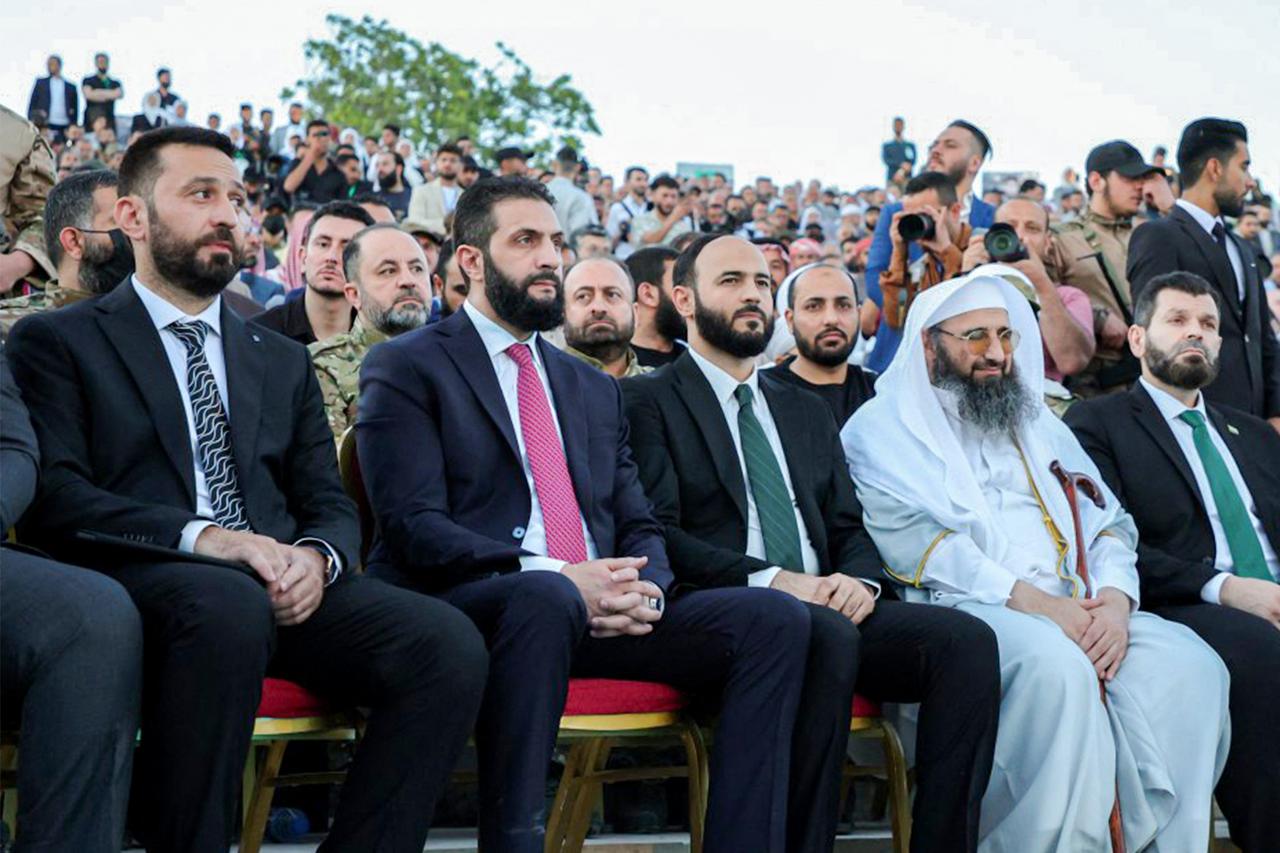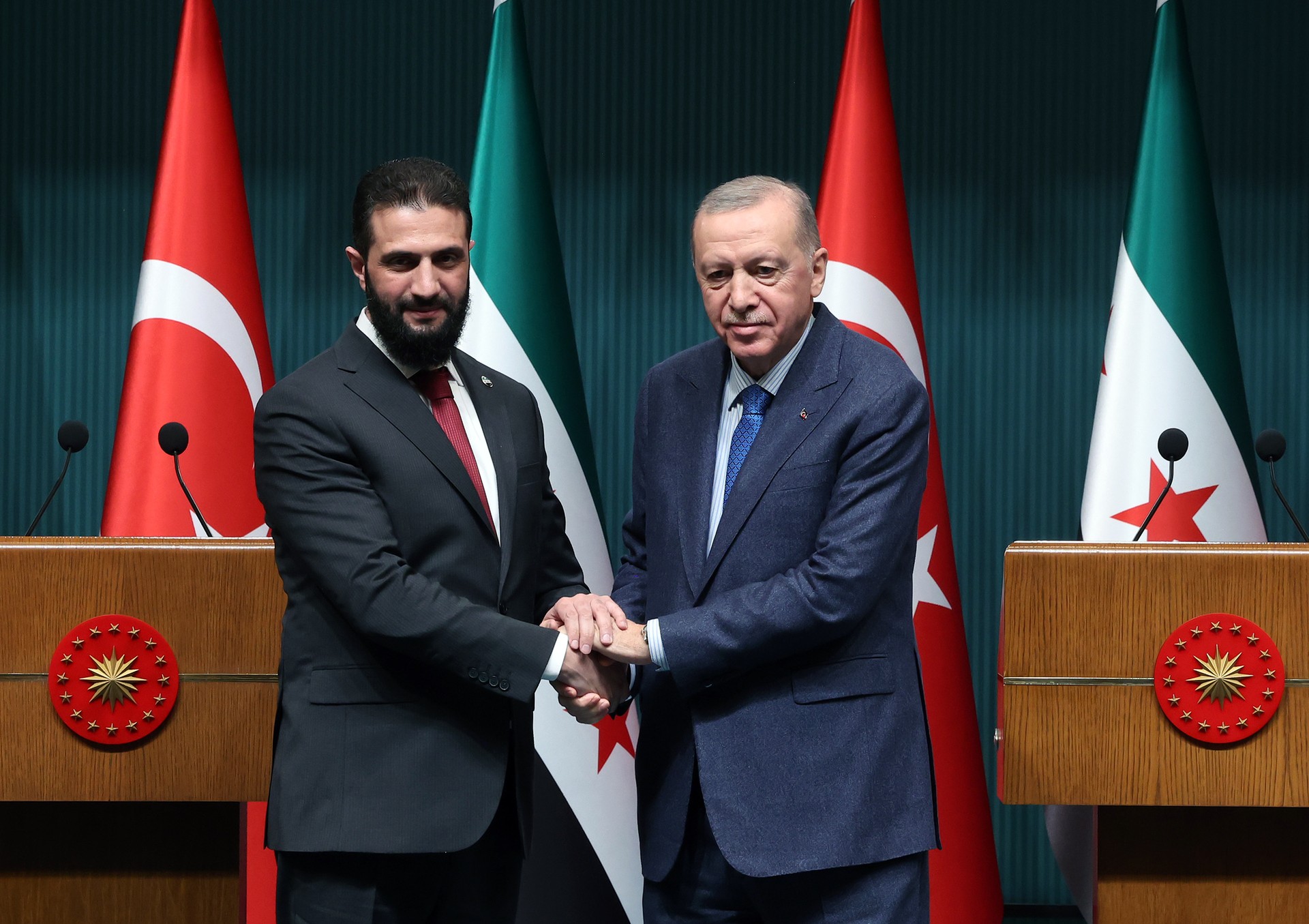
Syrian President Ahmad al-Sharaa sparked widespread reaction on social media after photos and videos circulated, showing what appeared to be an emotional moment during the “Aleppo: Key to Victory” event held at the Aleppo Citadel amphitheater.
The public event, attended by President al-Sharaa on Tuesday, marked a significant occasion celebrating the triumph of the Syrian revolution and paid tribute to the heroic fighters who played a pivotal role in Aleppo’s liberation.
In a widely shared video, al-Sharaa visibly cries as he watches a video of his past remarks: "My brothers, on this day… two years ago, I said that I see you in Aleppo as I see you now, and we do not deserve this shield unless we return to Aleppo…”
The Syrian civil war erupted during the Arab Spring in 2011, when the Assad regime violently suppressed pro-democracy protests.
This repression plunged Syria into a widespread civil war, with the formation of the Free Syrian Army to oppose government forces.
The conflict intensified as regional and global powers—including Saudi Arabia, Iran, the United States, and Russia—became involved, leading some observers to describe the war as a “proxy conflict.”
During this chaos, Daesh managed to establish a foothold before facing significant defeats.
Addressing the nation, President Al-Sharaa proclaimed, “Let us all unite and seek the help of God to create a bright future for a glorious country and people who deserve...”

As Syria begins the long road to recovery, the city of Aleppo stands at the center of both its history and its future.
Aleppo Governorate, known as Syria’s economic capital, lies in northern Syria near the Turkish border. The city of Aleppo itself is the country’s most populous and one of the oldest continuously inhabited cities in the world.
Aleppo Governorate, known as Syria’s economic capital, lies in northern Syria near the Turkish border.
The city of Aleppo itself is the country’s most populous and one of the oldest continuously inhabited cities in the world.
Situated at the crossroads of major ancient trade routes since the second millennium B.C., Aleppo has been ruled by many civilizations—from the Hittites and Assyrians to Arabs, Mongols, Mamluks, and Ottomans—each leaving their cultural mark on the city.
UNESCO estimates Aleppo to be over 12,200 years old, making it older than Damascus and Antioch.
Aleppo’s strategic importance lies in its role as a vital political, economic, and religious hub bridging East and West throughout history.